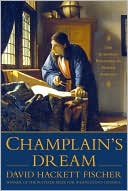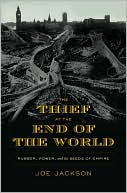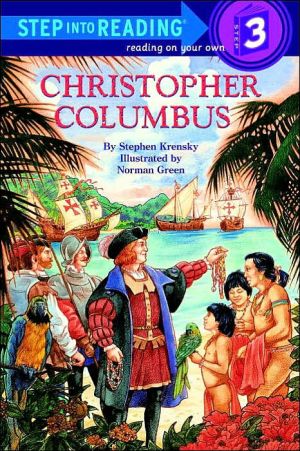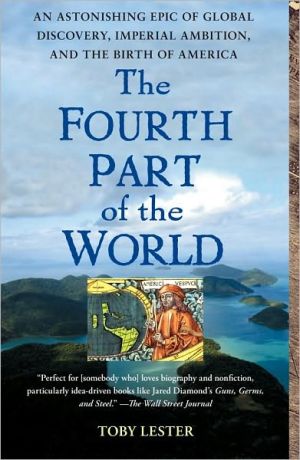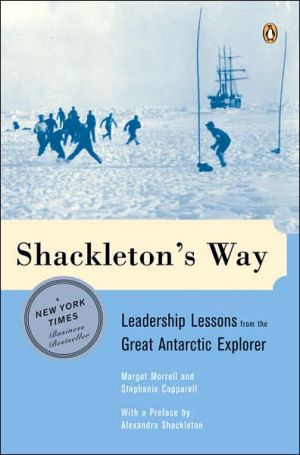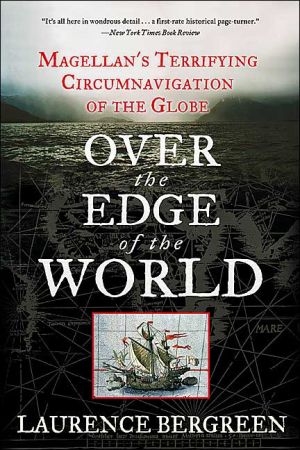Undaunted Courage: Meriwether Lewis, Thomas Jefferson and the Opening of the American West
From the bestselling author of Band of Brothers and D-Day, the definitive book on Lewis and Clark’s exploration of the Louisiana Purchase, the most momentous expedition in American history and one of the great adventure stories of all time. In 1803 President Thomas Jefferson selected his personal secretary, Captain Meriwether Lewis, to lead a voyage up the Missouri River to the Rockies, over the mountains, down the Columbia River to the Pacific Ocean, and back. Lewis and his partner,...
Search in google:
From the bestselling author of the definitive book on D-Day comes the definitive book on the most momentous expedition in American history and one of the great adventure stories of all time.In 1803 President Thomas Jefferson selected his personal secretary, Captain Meriwether Lewis, to lead a voyage up the Missouri River to the Rockies, over the mountains, down the Columbia River to the Pacific Ocean, and back. Lewis was the perfect choice. He endured incredible hardships and saw incredible sights, including vast herds of buffalo and Indian tribes that had had no previous contact with white men. He and his partner, Captain William Clark, made the first map of the trans-Mississippi West, provided invaluable scientific data on the flora and fauna of the Louisiana Purchase territory, and established the American claim to Oregon, Washington, and Idaho. Ambrose has pieced together previously unknown information about weather, terrain, and medical knowledge at the time to provide a colorful and realistic backdrop for the expedition. Lewis saw the North American continent before any other white man; Ambrose describes in detail native peoples, weather, landscape, science, everything the expedition encountered along the way, through Lewis's eyes.Lewis is supported by a rich variety of colorful characters, first of all Jefferson himself, whose interest in exploring and acquiring the American West went back thirty years. Next comes Clark, a rugged frontiersman whose love for Lewis matched Jefferson's. There are numerous Indian chiefs, and Sacagawea, the Indian girl who accompanied the expedition, along with the French-Indian hunter Drouillard, the great naturalists of Philadelphia, the French and Spanish fur traders of St. Louis, John Quincy Adams, and many more leading political, scientific, and military figures of the turn of the century.This is a book about a hero. This is a book about national unity. But it is also a tragedy. When Lewis returned to Washington in the fall of 1806, he was a national hero. But for Lewis, the expedition was a failure. Jefferson had hoped to find an all-water route to the Pacific with a short hop over the Rockies-Lewis discovered there was no such passage. Jefferson hoped the Louisiana Purchase would provide endless land to support farming-but Lewis discovered that the Great Plains were too dry. Jefferson hoped there was a river flowing from Canada into the Missouri-but Lewis reported there was no such river, and thus no U.S. claim to the Canadian prairie. Lewis discovered the Plains Indians were hostile and would block settlement and trade up the Missouri. Lewis took to drink, engaged in land speculation, piled up debts he could not pay, made jealous political enemies, and suffered severe depression.High adventure, high politics, suspense, drama, and diplomacy combine with high romance and personal tragedy to make this outstanding work of scholarship as readable as a novel. Publishers Weekly Ambrose has written prolifically about men who were larger than life: Dwight Eisenhower, Richard Nixon, Colonel Custer. Here he takes on half of the two-headed hero of American exploration: Meriwether Lewis. Ambrose, his wife and five children have followed the footsteps of the Lewis and Clark expedition for 20 summers, in the course of which the explorer has become a friend of the Ambrose family; the author's affection shines through this narrative. Meriwether Lewis, as secretary to Thomas Jefferson and living in the White House for two years, got his education by being apprenticed to a great man. Their friendship is at the center of this account. Jefferson hand-picked Lewis for the great cross-country trek, and Lewis in turn picked William Clark to accompany him. The two men shook hands in Clarksville, Ohio, on October 14, 1803, then launched their expedition. The journals of the expedition, most written by Clark, are one of the treasures of American history. Here we learn that the vital boat is behind schedule; the boat builder is always drunk, but he's the only one available. Lewis acts as surveyor, builder and temperance officer in his effort to get his boat into the river. Alcohol continues to cause him problems both with the men of his expedition and later, after his triumphant return, in his own life, which ended in suicide at the age of 35. Without adding a great deal to existing accounts, Ambrose uses his skill with detail and atmosphere to dust off an icon and put him back on the trail west. History Book Club main selection; BOMC split selection; QPB alternate
Introduction13Acknowledgments171Youth 1774-1792192Planter 1792-1794303Soldier 1794-1800384Thomas Jefferson's America 1801515The President's Secretary 1801-1802596The Origins of the Expedition 1750-1802687Preparing for the Expedition: January-June 1803808Washington to Pittsburgh: June-August 1803939Down the Ohio: September-November 180310810Up the Mississippi to Winter Camp: November 1803-March 180412111Ready to Depart: April-May 21, 180413312Up the Missouri: May-July 180414013Entering Indian Country: August 180415214Encounter with the Sioux: September 180416515To the Mandans: Fall 180417616Winter at Fort Mandan: December 21, 1804-March 21, 180519117Report from Fort Mandan: March 22-April 6, 180520218From Fort Mandan to Marias River: April 7-June 2, 180521119From Marias River to the Great Falls: June 3-June 20, 180523020The Great Portage: June 16-July 14, 180524121Looking for the Shoshones: July 15-August 12, 180525122Over the Continental Divide: August 13-August 31, 180526823Lewis as Ethnographer: The Shoshones28424Over the Bitterroots: September 1-October 6, 180528925Down the Columbia: October 8-December 7, 180530226Fort Clatsop: December 8, 1805-March 23, 180631827Lewis as Ethnographer: The Clatsops and the Chinooks33728Jefferson and the West: 1804-180634229Return to the Nez Perce: March 23-June 9, 180635330The Lolo Trail: June 10-July 2, 180636931The Marias Exploration: July 3-July 28, 180637932The Last Leg: July 29-September 22, 180639533Reporting to the President: September 23-December 31, 180640634Washington: January-March 180742235Philadelphia: April-July 180743136Virginia: August 1806-March 180743937St. Louis: March-December 180844538St. Louis: January-August 180946039Last Voyage: September 3-October 11, 180947140Aftermath476Notes485Bibliography503Index507


